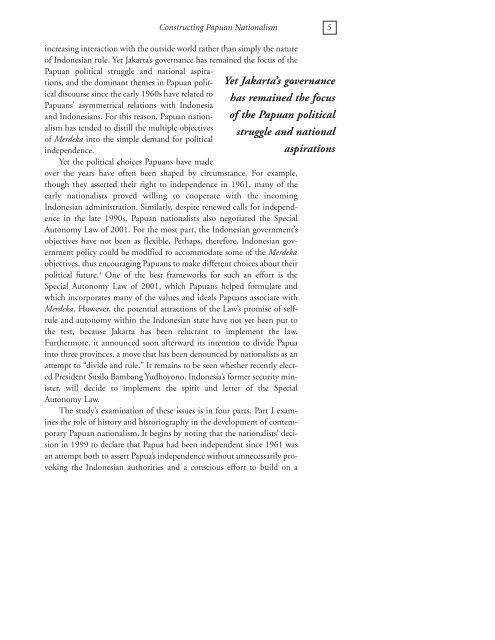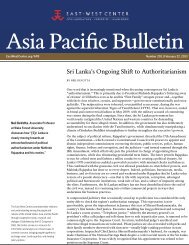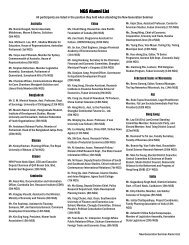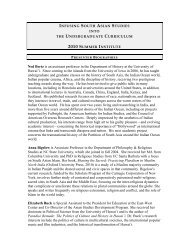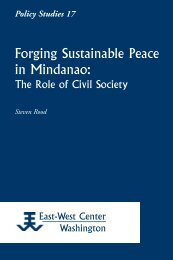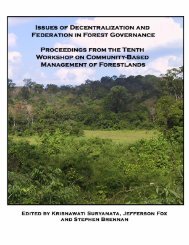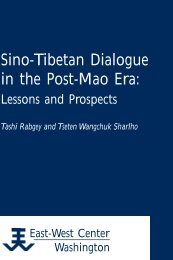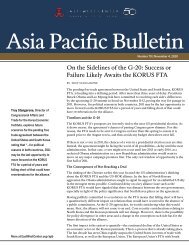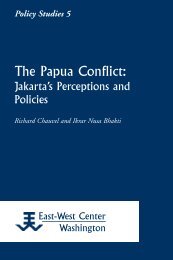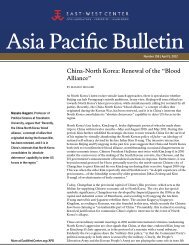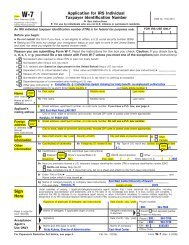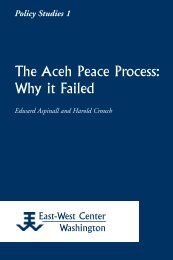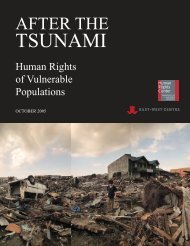Constructing Papuan Nationalism: History, Ethnicity ... - ScholarSpace
Constructing Papuan Nationalism: History, Ethnicity ... - ScholarSpace
Constructing Papuan Nationalism: History, Ethnicity ... - ScholarSpace
- No tags were found...
Create successful ePaper yourself
Turn your PDF publications into a flip-book with our unique Google optimized e-Paper software.
<strong>Constructing</strong> <strong>Papuan</strong> <strong>Nationalism</strong> 5increasing interaction with the outside world rather than simply the natureof Indonesian rule. Yet Jakarta’s governance has remained the focus of the<strong>Papuan</strong> political struggle and national aspirations,and the dominant themes in <strong>Papuan</strong> politicaldiscourse since the early 1960s have related to<strong>Papuan</strong>s’ asymmetrical relations with Indonesiaand Indonesians. For this reason, <strong>Papuan</strong> nationalismhas tended to distill the multiple objectivesof Merdeka into the simple demand for politicalindependence.Yet the political choices <strong>Papuan</strong>s have madeover the years have often been shaped by circumstance. For example,though they asserted their right to independence in 1961, many of theearly nationalists proved willing to cooperate with the incomingIndonesian administration. Similarly, despite renewed calls for independencein the late 1990s, <strong>Papuan</strong> nationalists also negotiated the SpecialAutonomy Law of 2001. For the most part, the Indonesian government’sobjectives have not been as flexible. Perhaps, therefore, Indonesian governmentpolicy could be modified to accommodate some of the Merdekaobjectives, thus encouraging <strong>Papuan</strong>s to make different choices about theirpolitical future. 3 One of the best frameworks for such an effort is theSpecial Autonomy Law of 2001, which <strong>Papuan</strong>s helped formulate andwhich incorporates many of the values and ideals <strong>Papuan</strong>s associate withMerdeka. However, the potential attractions of the Law’s promise of selfruleand autonomy within the Indonesian state have not yet been put tothe test, because Jakarta has been reluctant to implement the law.Furthermore, it announced soon afterward its intention to divide Papuainto three provinces, a move that has been denounced by nationalists as anattempt to “divide and rule.” It remains to be seen whether recently electedPresident Susilo Bambang Yudhoyono, Indonesia’s former security minister,will decide to implement the spirit and letter of the SpecialAutonomy Law.The study’s examination of these issues is in four parts. Part I examinesthe role of history and historiography in the development of contemporary<strong>Papuan</strong> nationalism. It begins by noting that the nationalists’ decisionin 1999 to declare that Papua had been independent since 1961 wasan attempt both to assert Papua’s independence without unnecessarily provokingthe Indonesian authorities and a conscious effort to build on aYet Jakarta’s governancehas remained the focusof the <strong>Papuan</strong> politicalstruggle and nationalaspirations


